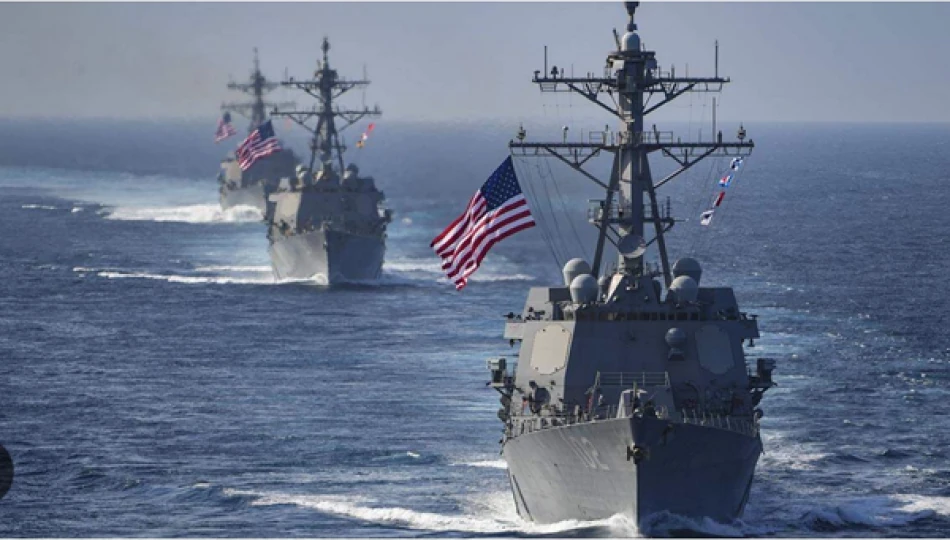
U.S. Deploys Warships to Caribbean to Combat Drug Trafficking
Trump Escalates Caribbean Naval Deployment as Drug War Takes Military Turn
President Donald Trump has ordered two additional warships to the Caribbean to combat drug cartels, marking a significant militarization of America's anti-narcotics strategy just one week after deploying naval vessels near Venezuela. The move signals a dramatic shift from traditional law enforcement approaches to what appears to be a quasi-military campaign against Latin American drug trafficking networks.
Nuclear-Powered Escalation Heads to Regional Waters
The USS Erie, a guided-missile cruiser, and the USS Newport News, a nuclear-powered fast-attack submarine, are expected to arrive in the region next week, according to a U.S. official speaking anonymously to AFP. The deployment follows Trump's previous order to position three warships off Venezuela's coast as part of operations targeting what the administration labels "narco-terrorist groups."
Military Hardware Meets Drug Enforcement
The inclusion of a nuclear submarine in anti-drug operations represents an unprecedented escalation in the decades-long war on drugs. Fast-attack submarines like the Newport News are typically reserved for high-stakes military operations against state adversaries, not criminal organizations. This suggests the Trump administration views certain drug cartels as threats requiring military-grade responses rather than traditional law enforcement tactics.
Venezuela in the Crosshairs
The timing and geography of these deployments clearly target Venezuela, where the U.S. has accused government officials of facilitating drug trafficking operations. Unlike previous administrations that relied primarily on sanctions and diplomatic pressure, Trump appears to be testing the waters—literally—for more direct military intervention in Latin American drug networks.
Historical Context: When Drug Wars Go Naval
The last comparable naval deployment for drug interdiction occurred during the 1980s when the Reagan administration used military assets to combat Colombian cartels. However, those operations primarily involved Coast Guard cutters and smaller vessels, not nuclear submarines and guided-missile cruisers—hardware typically reserved for conflicts with major military powers like China or Russia.
Market and Regional Implications
For regional markets, this militarization introduces new volatility factors. Caribbean shipping routes handle significant commercial traffic, and increased military presence could affect insurance rates and logistics costs for legitimate trade. Energy markets may also react to perceived threats near Venezuela, one of the world's largest oil reserves holders, despite its current production challenges.
Allies and Adversaries Take Note
The deployment sends signals far beyond drug enforcement. Regional allies like Colombia may welcome increased U.S. military presence, while countries like Cuba and Nicaragua likely view this as aggressive posturing. More significantly, China and Russia—both of which have invested heavily in Venezuelan infrastructure—must now calculate how this American naval presence affects their own regional interests.
The Bigger Strategic Picture
This naval escalation reflects Trump's broader approach of using military assets for non-traditional missions, from border security to trade enforcement. By framing drug cartels as "narco-terrorists," the administration creates justification for military responses that previous presidents reserved for actual warfare.
The real test will be whether this show of force produces measurable results in drug interdiction or merely adds another layer of complexity to an already volatile region. With nuclear submarines now patrolling Caribbean waters ostensibly to fight drug dealers, the line between law enforcement and military action has effectively disappeared.
Most Viewed News

 Layla Al Mansoori
Layla Al Mansoori






